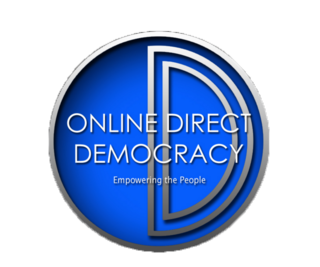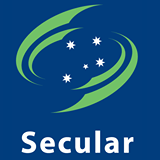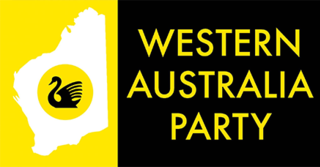Legalise Cannabis Australia, formerly the Help End Marijuana Prohibition (HEMP) Party, is a single-issue Australian political party. It has a number of policies that centre around the re-legalisation of cannabis for personal, medicinal and industrial uses in Australia.
The Australian People's Party was a registered political party in Australia. It was registered by the Australian Electoral Commission in March 2017. It was formed in 2014. The party recruited enough members to gain registration in March 2017. The party said its aim was to improve standards of living and rights for all Australians through commonsense policies. The party describes itself as a centrist party. The party was de-registered in November 2021 by the Australian Electoral Commission for not having 500 members.

The Liberal Democratic Party, shortened as LDP, Liberal Democrats, or Lib Dems, is an Australian political party founded in Canberra in 2001. The party espouses smaller government and supports policies that are based on classical liberal, libertarian principles, such as lower taxes, opposing restrictions on civil liberties, decentralisation, utilising nuclear energy, and the relaxation of smoking laws.
The Women's Electoral Lobby (WEL) is a feminist, non-profit, self-funded, non-party political, lobby group founded in 1972 during the height of second-wave feminism in Australia. WEL's mission is to create a society where women's participation and potential are unrestricted, acknowledged and respected and where women and men share equally in society's responsibilities and rewards.

The Non-Custodial Parents Party was a minor political party in Australia registered between 1999 and 2020. It supported less government control of many aspects of daily family life, focusing on reform of family law and child support.
The fathers' rights movement in Australia focus on issues of erosion of the family unit, child custody, shared parenting, child access, child support, domestic violence against men, false allegations of domestic violence, child abuse, the reintroduction of fault into divorce proceedings, gender bias, the adversarial family court system and secrecy issues.

Online Direct Democracy – was a registered Australian political party. It was briefly named Climate Action! Immigration Action! Accountable Politicians! from January 2019 to September 2019, and had previously been known as Senator Online. The party was de-registered in December 2020.

Pirate Party Australia is a political party in Australia that had traditionally represented civil liberty issues, but had also expanded into more traditional areas of policy. It was a Pirate Party which was based on the Pirate Party of Sweden, and continued to develop a comprehensive policy platform since its formation based on the Pirate ethos.

The Secular Party of Australia is a minor Australian political party, founded in January 2006 and registered as a federal political party in 2010. It aims to promote secular humanist ethical principles and the separation of church and state in Australia.

The United Australia Party (UAP), formerly known as Clive Palmer's United Australia Party and the Palmer United Party (PUP), is an Australian political party formed by mining magnate Clive Palmer in April 2013. The party was deregistered by the Australian Electoral Commission in 2017, revived and re-registered in 2018, and voluntarily deregistered in 2022. The party fielded candidates in all 150 House of Representatives seats at the 2013 federal election. Palmer, the party's leader, was elected to the Division of Fairfax and it reached a peak of three senators following the rerun of the Western Australian senate election in 2014. When the party was revived under its original name in 2018, it was represented by ex-One Nation senator Brian Burston in the federal parliament.
The Smokers' Rights Party was a registered political party in Australia from 2013 until September 2017.
The Australian Progressives is a minor Australian political party established in September 2014.

The Women's Equality Party (WEP) is a feminist political party set up in the United Kingdom in 2015. The idea was conceived by Catherine Mayer and Sandi Toksvig at the Women of the World Festival, when they concluded that there was a need for a party to campaign for gender equality to the benefit of all. The launch meeting was on 28 March 2015 under the title "The Women's Equality Party needs you. But probably not as much as you need the Women's Equality Party". The party's full policy was launched by its then-leader Sophie Walker at Conway Hall on 20 October 2015. In January 2020, Mandu Reid took over as party leader.

Yellow Vest Australia (YVA), until 9 April 2019 known as the Australian Liberty Alliance (ALA), was a minor right-wing to far-right political party in Australia. The party was founded by members of the Q Society and has been described as the political wing of Q Society. The leader was Debbie Robinson (President), who was also national president of the Q Society. On 4 September 2020, the Australian Electoral Commission removed the Yellow Vest Australia from the registered political party list.
Civil Liberties & Motorists Party, formerly the Motorists Party; Civil Liberties, Consumer Rights, No-Tolls; Consumer Rights & No-Tolls Party; No-Tolls.org; No Tolls, No Sell Offs; and Consumer Rights & No-Tolls is a Queensland-based political party. It has been registered in Queensland since 2015.

The Western Australia Party is a regional political party active in Western Australia.
The Australian Sex Party was an Australian political party founded in 2009 in response to concerns over the purported increasing influence of religion in Australian politics. The party was born out of an adult-industry lobby group, the Eros Association. Its leader, Fiona Patten, was formerly the association's CEO.
Australian Better Families was a political party registered on 31 August 2018. The Party's founder is Leith Erikson and has the slogan “Better Families for a Better Australia”. Australian Better Families campaign targets new and existing laws in the areas of mental health, child support and family law. Australian Better Families promotes the rights of father's in the legal system, particularly stressing the trauma caused by separation from family during legal proceedings. The party is a branch of the Australian Brotherhood of Fathers organisation, who stated they created the party as they "can no longer sit silently on the political sidelines to witness the betrayal of our children and families."
The Women's Electoral Lobby (WEL) in New Zealand was a non-partisan feminist lobby organisation founded in 1975. From the 1970s to the 1990s it worked for greater participation of women in local and national politics. WEL educated and supported women to stand for election, lobbied and advocated for women, and monitored legislation and the media to make sure women's concerns were addressed. It supported the introduction of the proportional representation voting system in 1996 on the grounds that it would lead to greater representation of women in parliament.
The Together Party was an Australian political party founded in 2018. It advocated policies to restore "Government in the public interest".









